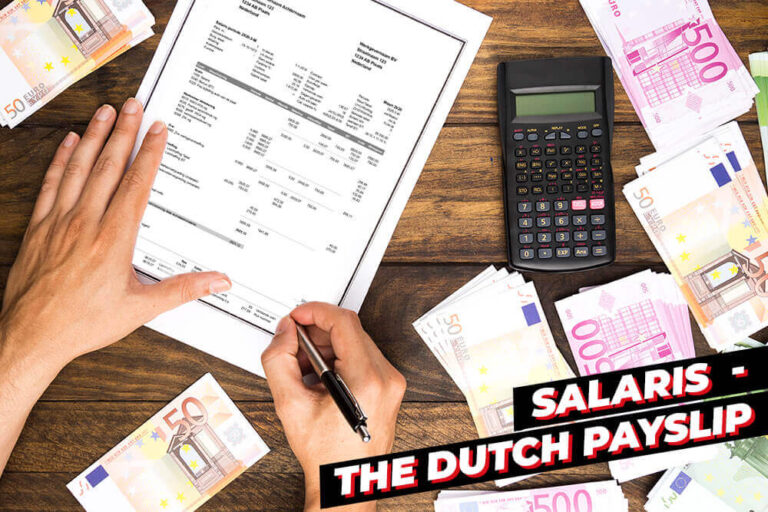Every year, thousands of young Poles choose to go to work abroad. According to a Statistics Poland (GUS) report, the most popular destinations are Germany, Ireland, and the Netherlands. Such results are not surprising, as the Netherlands has for years been in the top three of the European countries most often chosen by Poles as a place of economic emigration.
When you decide to work abroad, you not only have to complete all the formalities but also familiarise yourself with the labour laws of the country in question. How does Dutch labour law differ from Polish labour law? Here is a collection of the most important information.
Labour law in the Netherlands
The Netherlands is regarded as a very pro-social country that effectively protects workers’ rights. Although it’s rare for employers in this country to break labour law or exploit workers, it’s advisable that you familiarise yourself with relevant regulations before your trip to the Netherlands, especially with issues relating to working time, annual leave, sick pay, and overtime.
Working time and overtime
Dutch labour law precisely defines the working day, as well as the number of hours that can be worked.
- An employee may not work more than 12 hours in a 24-hour period, including overtime, and must have a break of 11 hours between shifts. Once a week, rest between shifts may be exceptionally reduced to 8 hours.
- Every employee should have a minimum of 36 hours of uninterrupted rest after a working week.
- If the working time exceeds 5.5 hours, workers are entitled to a minimum break of 30 minutes. If the working time exceeds 10 hours, the break should last at least 45 minutes. Breaks in the Netherlands are not usually paid.
- Normally, a person employed in the Netherlands works 8 hours a day and 40 hours a week.
The maximum working week can amount to 60 hours. However, employees on night shifts, who can work no more than 40 hours in total per week, are excluded from this rule. Also, their shift must not exceed 10 hours.
If a shift ends after 2.00 a.m., a worker is entitled to at least 14 hours of rest afterwards.
A night shift means that at least one hour of work is between midnight and 6.00 a.m. - Overtime (i.e. work exceeding 40 hours per week) is paid at between 125% and 135% of the normal rate depending on the CAO.
- Pregnant women and people under 18 years of age have different working time standards.
Working time for women during pregnancy and confinement in the Netherlands
In the Netherlands, a pregnant woman is entitled to additional protection:
- Pregnancy exempts the worker from night work. This rule applies until 6 months after the birth of the worker’s child.
- A woman who does shift work is protected in the same way. According to the law, she has the right to work to a stable and regular daily rhythm, as well as to rest. So, if shift work becomes too difficult for such a female employee, she does not have to do it.
- A pregnant woman in the Netherlands is entitled to extra breaks and can also refuse to work overtime.
Occupational health and safety
In the Netherlands, the employer and its employees share responsibility for safe working conditions. The employer should inform its employees about the applicable occupational health and safety laws and rules and give them clear job-specific instructions.
The rules are usually part of the company’s OHS manual. If the work is dangerous or workers are exposed to dangerous substances, the employer must provide them with proper personal protective equipment (e.g. helmets, gloves, and masks) free of charge. The employee is obliged to use them. Moreover, every employee has the right to refuse to work if working conditions are directly hazardous to their life or health.
Any complaints and accidents at work should first be reported by the employee directly to the employer, and if the employer has a passive attitude, to the Dutch equivalent of the National Labour Inspectorate (PIP), Inspectie SZW.
For those employed through a temporary employment agency, the responsibility for occupational health and safety lies with the company where the work is carried out, rather than the employment agency.
Occupational safety of pregnant women
Within 2 weeks of the notification of pregnancy, the employer must inform the pregnant woman of the risks involved in her job as well as take measures to prevent such risks.
Harmful factors for pregnant women include:
- exposure to vibration (e.g. trucks and agricultural machinery);
- ionising radiation (radiation emitted by radioactive substances, e.g. in hospitals and laboratories);
- contact with chemicals or risk of infection, e.g. in the cleaning sector, the chemical industry, agriculture, medical industry or in services such as hairdressing;
- performing manual work such as lifting, pushing, pulling, and carrying, as well as prolonged standing;
- working in places with noise levels above 80 decibels (e.g. in the metalworking industry, at swimming pools, in the entertainment industry, in agriculture, but also schools and nursery schools);
- prolonged stress.
Leave and public holidays
According to Dutch labour law, everybody, regardless of the nature of their work and position held, can expect to have between 20 and 30 days of paid leave per year.
Importantly, the leave itself – as opposed to being decided top-down – must be earned. It’s calculated as a reserve of 8.7% on the hours worked under the weekly working time standard.
However, the number of days of leave depends on the employee’s tenure and age. Of course, the number of days of paid leave also depends on a person’s working hours. In addition to their paid leave, everyone receives a holiday allowance amounting to a minimum of 8.33% of their annual salary.
In addition to paid leave, there are public holidays, which are statutory days off.
In 2025 these include:
- New Year (Nieuwjaar)– January 1, 2025
- Easter (Pasen) – April 20, 2025
- Easter Monday (Pasen) – April 21, 2025
- King’s Day (Koningsdag) – April 26, 2025,
- Ascension Day (Hemelvaartsdag) – May 29, 2025
- Pentecost (Pinksteren) – June 8, 2025
- Monday after Pentecost (Pinksteren) – June 9, 2025
- First Christmas Day (Kerstmis) – December 25, 2025
- Second Christmas Day (Kerstmis) – December 26, 2025
Bevrijdingsdag — an unusual Dutch holiday
Liberation Day, or Bevrijdingsdag, is celebrated on May 5. Liberation Day is a popular holiday that commemorates the date of the liberation of the Netherlands from Nazi occupation in 1945. Although Bevrijdingsdag is an official public holiday, not all Dutch people have the day off. Many collective agreements stipulate that employees will have this day off every 5 years. The nearest Bevrijdingsdag being a public holiday will fall in 2025.
Differences between Poland and the Netherlands
It’s good to know that in the Netherlands you don’t get an extra day off for a public holiday falling on a Saturday, as is the case in Poland. In our country, a Saturday holiday means a reduction in the employee’s working time by 8 hours, which gives them the right to take a day off in the same pay period.
In addition, Dutch labour law provides for the possibility of working on a public holiday at a special rate of at least 200% of the regular pay.
Collective Labour Agreements (CAO)
The rules with respect to the legal relationship between the employer and the employee in the Netherlands are governed not only by the applicable labour laws but also by collective agreements (Collectieve Arbeidsovereenkomst, abbreviated as CAO). In some cases, the CAO arrangements may deviate from the standards set by the labour code.
When starting employment through an employment agency, you will be covered by the Collective Labour Agreement for the Temporary Work Sector. In the Netherlands, employment agencies can be members of one of two organisations: ABU (General Association of Temporary Employment Agencies) or NBBU (Dutch Association of Job Brokerage and Temporary Employment Agencies). Each has a separately signed agreement with the trade unions (ABU-CAO and NBBU-CAO).
Before travelling to the Netherlands, it’s worth checking whether the employment agency you want to use is a member of ABU or is listed in the NBBU register. Intermediary agencies that don’t belong to one of these organisations may take advantage of employees’ ignorance and fail to comply with the provisions of CAO in the Netherlands.
We recommend seeking employment in affiliated agencies, such as Carrière. This way, you’ll be sure that your rights won’t be violated.
Source:: https://www.gov.pl/web/holandia/praca-i-pobyt
















